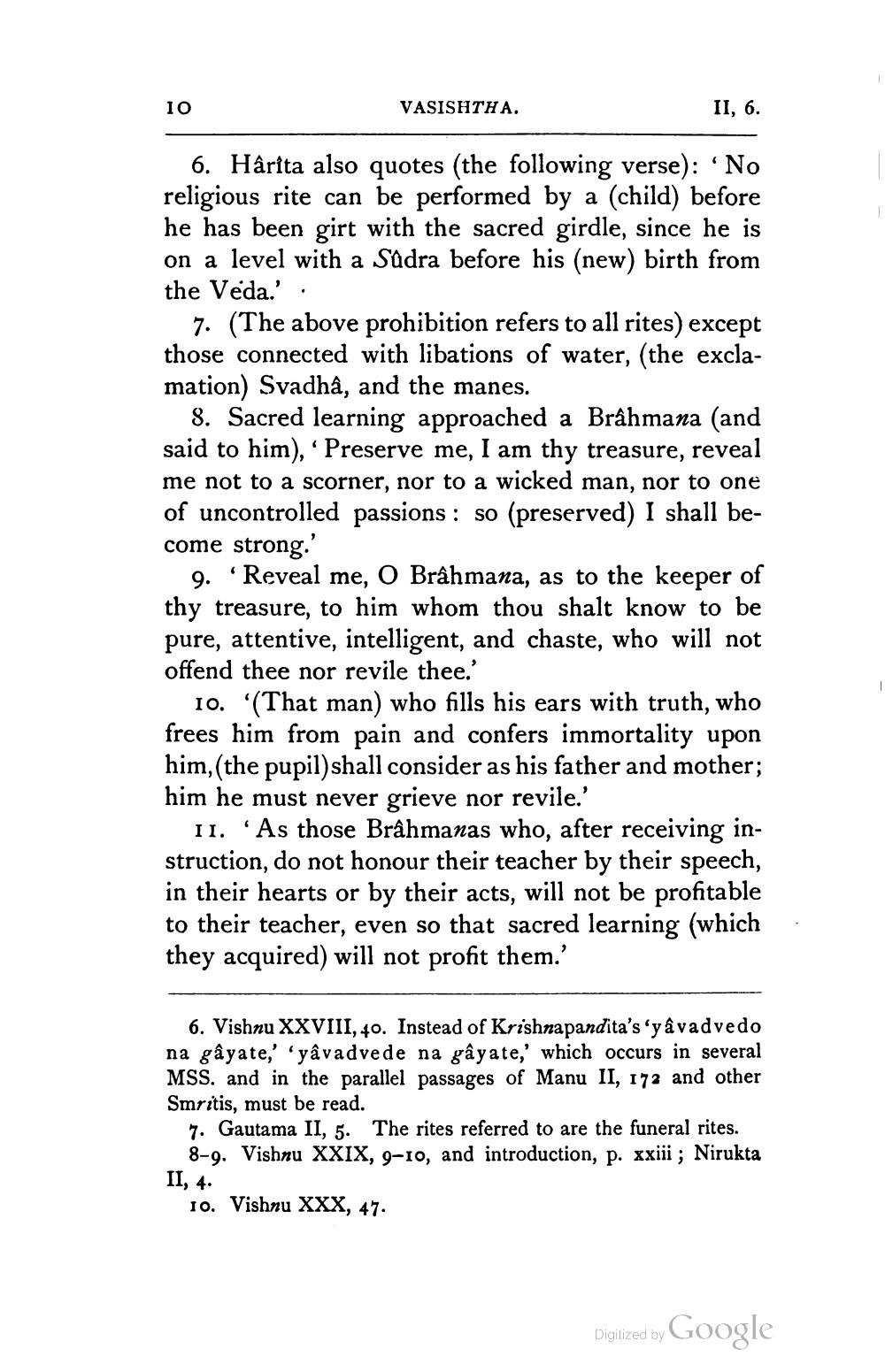________________
1ο
VASISHTHA.
II, 6.
6. Hârita also quotes (the following verse): 'No religious rite can be performed by a (child) before he has been girt with the sacred girdle, since he is on a level with a Sudra before his (new) birth from the Veda.' :
7. (The above prohibition refers to all rites) except those connected with libations of water, (the exclamation) Svadhâ, and the manes.
8. Sacred learning approached a Brâhmana (and said to him), Preserve me, I am thy treasure, reveal me not to a scorner, nor to a wicked man, nor to one of uncontrolled passions : so (preserved) I shall become strong.'
9. Reveal me, O Brâhmana, as to the keeper of thy treasure, to him whom thou shalt know to be pure, attentive, intelligent, and chaste, who will not offend thee nor revile thee.'
10. (That man) who fills his ears with truth, who frees him from pain and confers immortality upon him, (the pupil)shall consider as his father and mother; him he must never grieve nor revile.'
11. “As those Brâhmanas who, after receiving instruction, do not honour their teacher by their speech, in their hearts or by their acts, will not be profitable to their teacher, even so that sacred learning (which they acquired) will not profit them.'
6. Vishnu XXVIII, 40. Instead of Krishnapandita's'y avadvedo na gâyate,' 'yâvadvede na gâyate,' which occurs in several MSS. and in the parallel passages of Manu II, 172 and other Smritis, must be read.
7. Gautama II, 5. The rites referred to are the funeral rites. 8-9. Vishnu XXIX, 9-10, and introduction, p. xxiii ; Nirukta
II, 4.
10. Vishnu XXX, 47.
Digitized by Google




